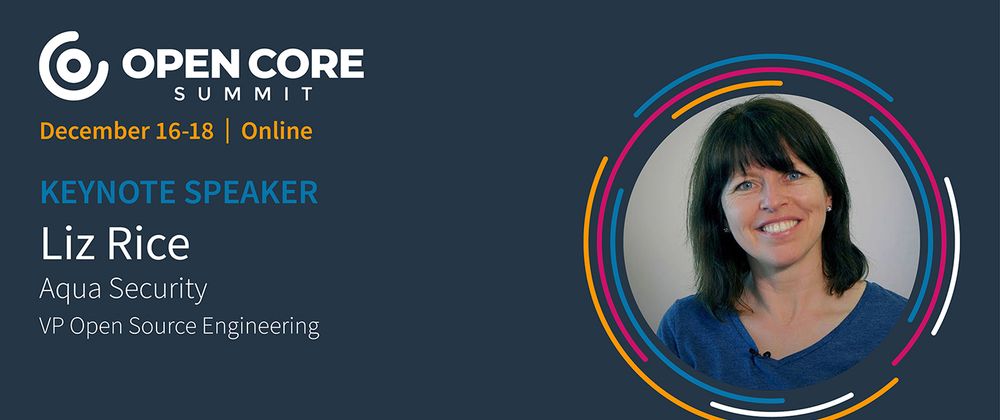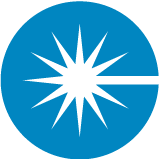Liz Rice is VP Open Source Engineering with cloud native security specialists Aqua Security, looking after projects including Starboard, Trivy, Tracee, Kube-hunter and Kube-bench. She is chair of the CNCF's Technical Oversight Committee, and was Co-Chair of KubeCon + CloudNativeCon in 2018. She is also the author of Container Security, published by O'Reilly. She has a wealth of software development, team, and product management experience from working on network protocols and distributed systems, and in digital technology sectors such as VOD, music, and VoIP. When not writing code, or talking about it, Liz loves riding bikes in places with better weather than her native London, and competing in virtual races on Zwift.
Relevant Links
LinkedIn - Twitter
Liz Rice, Aqua Security Head of Open Source, offers an expansive view on how Aqua participates in the open source ecosystem as a commercializor and contributor.
Introduction — 00:00
“Today I want to talk about the lessons I’ve learned and arguments I’ve used to convey the value that open source can bring to the commercially oriented folks in our organization” — 00:35
We’re in the business of selling software. “We define the measure of success in terms of the revenue we get selling software.” This makes it difficult to approach the idea of giving software away for free. — 00:55
You can end up in the Apache License conversation. “Imagine you work in a company with no open source software today, but you have an idea to release a piece of code, and you want to give it a permissive license. So you explain the license …”. Liz walks through the license conversation. — 1:50
“If you want the business to come with you on an open-source journey, you’re going to have to convey the value of open source to the company.” — 3:00
Liz explains how open source can help reach technical users, and from there, account holders in technical departments. — 3:25
Engineers are people, who love tools that solve their problems, and love to share solutions. — 4:20
Engineers are people who love tools that solve their problems without expense reports. Since engineers don’t have discretion over budget, there will be pain and friction of using a tool if it isn’t free. “As a commercial company, even putting a small price tag on your software can create friction and make it much harder for engineers to use that tool. That’s something your commercial folks really need to understand. Much harder for engineers to try something out if it’s not free.” — 5:28
“If they’re able to use a free tool and find that it’s good, they become part of a community of users and contributors.” — 6:22
“For a decade, we’ve been hearing that the developer is king. … Technical folks may not hold the purse string, but they do have influence on the buyer.” Going into a sales meeting, if technical team has already been using a company’s open-source tools, it’s like a warm introduction. “The team is already familiar with the brand and know our expertise.” — 7:05
“A good sales person is helping matching a customer with a solution they need. … It took me a long time to realize that sales doesn’t have to be evil, and it can and should be a win for everyone involved. … It’s only good sales that result in repeat sales and good reputation. … We’re only interested in good sales.” — 8:00
Liz speaks about the importance of educating potential customers, and how open-source tools can help potential customers plug specific security gaps, while figuring out their long-term solution. This resonates very well with Aqua’s sales team. — 8:40
Liz highlights the multiplier effect of community. — 9:55
“If we’re gonna give software away, what can we sell?” Liz expands on this question, and describes Aqua’s open core model as less about unlocking premium features, and more about moving from standalone features to a cohesive platform. — 11:11
Liz illustrates Aqua’s standalone tools, and their value in their own individual contexts, as well as their Enterprise platform which brings all of the standalone tools into one place. — 12:20
“It’s not a case of upgrading from free to paid. It’s more that a small subset of users need an integrated, scalable solution, and because they’ve been using our open-source tools and they’re familiar with us, it’s natural for them to have a conversation with us about their needs.” — 13:20
“You can’t pretend that open source by itself is going to make money, but you can show that it’s going to build value for your company.” Through brand awareness, customer education, and the community multiplier. To get the benefits, you have to be honest about open-source contributions and participate honestly in the open source ecosystem. “If you add value for your users, it can also add value for your company.” — 13:56
Share your questions and comments below!



Top comments (0)